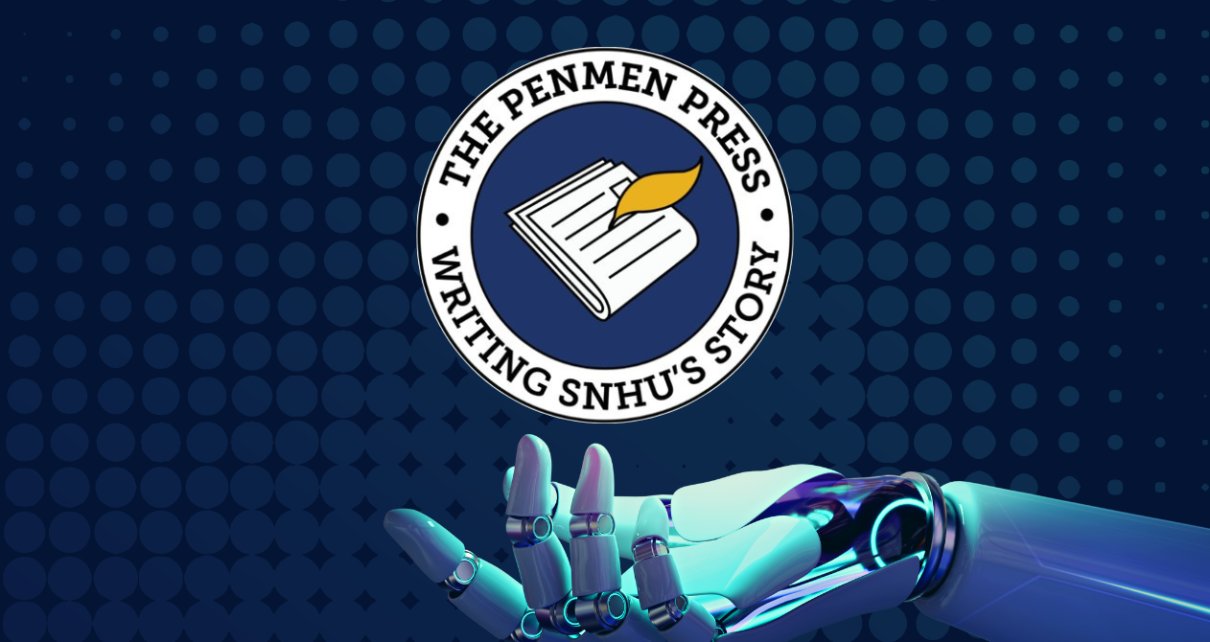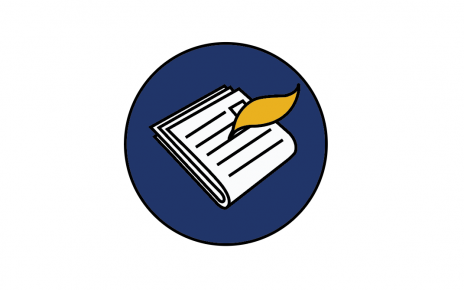Disclaimer: This article was written with the assistance of Chat GPT, an Artificial Intelligence software.
As the digital age continues to transform various industries, Southern New Hampshire University (SNHU) emerges as a leading institution, embracing cutting-edge technology to enhance its journalistic endeavors.
The Penmen Press, the university’s student-run media outlet, is taking an innovative approach, incorporating Artificial Intelligence (AI) to assist in writing some articles during the upcoming school year. This bold step reflects SNHU’s commitment to navigating AI and harnessing its potential to empower and revolutionize the world of technology.
Artificial Intelligence has been rapidly advancing, reshaping the way we interact, learn, and work. SNHU recognized the significance of AI in the modern world and, rather than shying away from it, decided to leverage its capabilities.
By incorporating AI into The Penmen Press, the organization aims to maintain its commitment to providing students with exceptional opportunities for professional growth and skill development.
While the integration of AI might raise concerns about human journalists being replaced, The Penmen Press has made it clear that AI will not replace its students’ role in reporting and storytelling. Instead, AI will serve as a valuable tool, complementing and augmenting the work of human writers.
The goal is to automate certain repetitive tasks, such as data analysis, fact-checking, and generating preliminary drafts, enabling journalists to focus on more complex aspects of reporting, like investigative journalism, crafting compelling narratives, and conducting in-depth interviews.
The Penmen Press acknowledges that AI is not infallible and that, in some cases, AI-generated content might require additional verification and editing. The organization is committed to maintaining the highest standards of accuracy and journalistic integrity. Human editors will play a crucial role in ensuring the content produced by AI aligns with the newspaper’s principles and adheres to ethical guidelines.
One of the significant advantages of integrating AI into journalism is the potential to enhance efficiency and productivity. AI algorithms can sift through vast amounts of data, identify patterns, and provide valuable insights, assisting journalists in uncovering compelling stories and trends. This can significantly streamline the research process, allowing reporters to focus on developing thought-provoking content that adds value to their readers’ lives.
Moreover, AI can contribute to personalization, tailoring content to individual readers’ preferences. By analyzing user behavior and interests, AI algorithms can suggest relevant articles and topics, providing a more engaging and tailored reading experience.
The Penmen Press, by incorporating AI, exemplifies SNHU’s commitment to staying at the forefront of educational and technological advancements.
The organization’s pioneering approach not only sets an example for other academic institutions but also showcases the power of harnessing AI to amplify human potential.
In conclusion, The Penmen Press stands on the threshold of a new era in journalism, where AI becomes a valuable ally in the pursuit of truth and storytelling. By embracing AI while remaining committed to journalistic ethics and standards, The Penmen Press is paving the way for a future where human journalists and AI technology work together synergistically.
The Penmen Press’ foray into AI is a testament to SNHU’s dedication to providing its students with the tools they need to succeed in an ever-evolving world.
As AI becomes an integral part of our lives, it is essential to remember that this article was made possible with the assistance of AI, but the human element remains at the heart of the journalistic craft.




